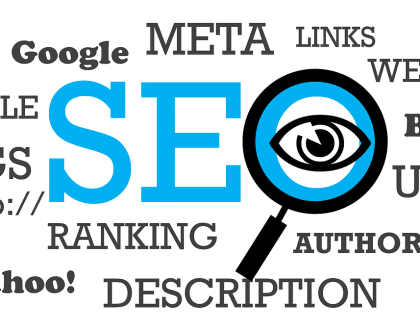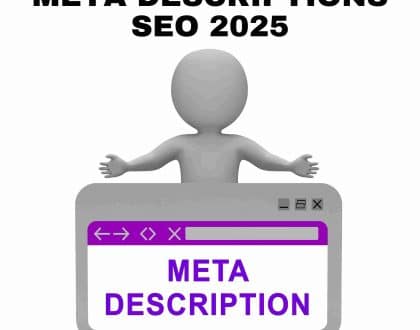How to Choose a Web Development Agency: A Comprehensive Guide

In today’s digital age, having a strong online presence is crucial for businesses of all sizes. Your website serves as a virtual storefront, representing your brand and attracting potential customers. However, developing a professional and effective website requires expertise and technical know-how that may not be available in-house. That’s where web development agencies come in. Choosing the right agency to handle your web development needs can be a daunting task. This comprehensive guide aims to provide you with the essential considerations and tips to help you make an informed decision.
How to Choose a Web Development Agency? Let’s check it out!
Choosing the right web development agency is a critical decision that can significantly impact your online presence and business success. By defining your requirements, conducting thorough research, evaluating technical expertise, considering communication and collaboration, assessing budget and cost, and addressing legal aspects, you can make an informed decision. Take the time to find an agency that aligns with your vision, understands your goals, and possesses the necessary skills and experience to bring your website to life. A successful partnership with a reliable web development agency can set the foundation for a thriving online presence and business growth.
Define Your Requirements to find the best Web Development Agency:
Before embarking on the journey of selecting a web development agency, it is vital to have a clear understanding of your requirements. Consider the following:
Purpose:
Identify the primary purpose of your website, whether it’s to sell products, showcase your portfolio, or provide information.
Design Preferences:
Determine your design preferences, such as the overall aesthetic, color scheme, and user experience.
Functionality:
List the essential features and functionalities you expect your website to have, such as e-commerce capabilities, responsive design, or content management system (CMS) integration.
Research and Shortlist Potential Web Development Agencies:
Once you have a clear vision of your requirements, it’s time to research and create a shortlist of potential web development agencies. Consider the following factors during your research:
Portfolio:
Review the agency’s portfolio to assess the quality and diversity of their previous work. Look for examples that align with your vision and industry.
Expertise and Specialization:
Determine if the agency has experience and expertise in the specific technologies and platforms you require, such as WordPress, Shopify, or custom development.
Client Testimonials and Reviews:
Check for client testimonials and reviews on the agency’s website or third-party platforms. This will provide insights into their reputation and client satisfaction.
Industry Experience:
Consider whether the agency has worked with clients in your industry or a similar field. Familiarity with your industry can bring valuable insights and understanding to the project.
Team Composition:
Assess the agency’s team composition, including designers, developers, project managers, and quality assurance specialists. A well-rounded team ensures a smoother development process.
Evaluate Technical Expertise to find a Best Web Development Agency:
The technical expertise of a web development agency is a critical factor in the success of your project. Consider the following:
Development Process:
Inquire about the agency’s development process and methodologies. They should have a systematic approach that includes project planning, wireframing, design, development, testing, and deployment.
Coding Standards:
Ask about the agency’s coding standards and practices. Clean, optimized, and well-structured code ensures the scalability and maintainability of your website.
Technology Stack:
Discuss the technology stack the agency utilizes. Ensure they use up-to-date technologies and frameworks that align with industry standards.
Mobile Responsiveness:
With the increasing use of mobile devices, your website must be responsive and optimized for various screen sizes. Inquire about the agency’s approach to mobile responsiveness.
SEO Considerations:
A website that is search engine optimized can significantly impact your online visibility. Ask the agency about their approach to on-page SEO and website performance optimization.
Communication and Collaboration:
Effective communication and collaboration are crucial throughout the web development process. Consider the following aspects:
Communication Channels:
Determine the agency’s preferred communication channels and frequency of updates. Clear and prompt communication is essential for project transparency.
Project Management:
Inquire about the project management tools and methodologies the agency uses. This ensures efficient collaboration, task tracking, and deadline management.
Accessibility and Support:
Understand the agency’s availability for ongoing support, maintenance, and troubleshooting after the website launch. A reliable agency should provide post-launch support and be responsive to your needs.
Budget and Cost Considerations:
While budget is an important factor, it should not be the sole determining factor. Consider the following:
Value for Money:
Instead of focusing solely on the lowest price, evaluate the agency’s value proposition. Look for a balance between quality, expertise, and affordability.
Cost Transparency:
Ensure the agency provides a detailed breakdown of the project cost, including any additional charges or ongoing maintenance fees.
Scalability:
Discuss the scalability of the project and any future requirements. A web development agency should be able to accommodate your growth and expansion plans.
Legal and Contractual Aspects:
Before finalizing your decision, address the legal and contractual aspects. Consider the following:
Intellectual Property Rights:
Ensure the agency transfers the intellectual property rights of the website to your business upon completion.
Non-Disclosure Agreements:
If your project involves sensitive information, consider whether the agency is willing to sign a non-disclosure agreement (NDA) to protect your data.
Service Level Agreement (SLA):
Discuss and agree upon the project timeline, deliverables, and any penalty clauses for missed deadlines.
Recommended Posts

Local SEO vs. Global SEO: A Comprehensive Guide
May 14, 2025



